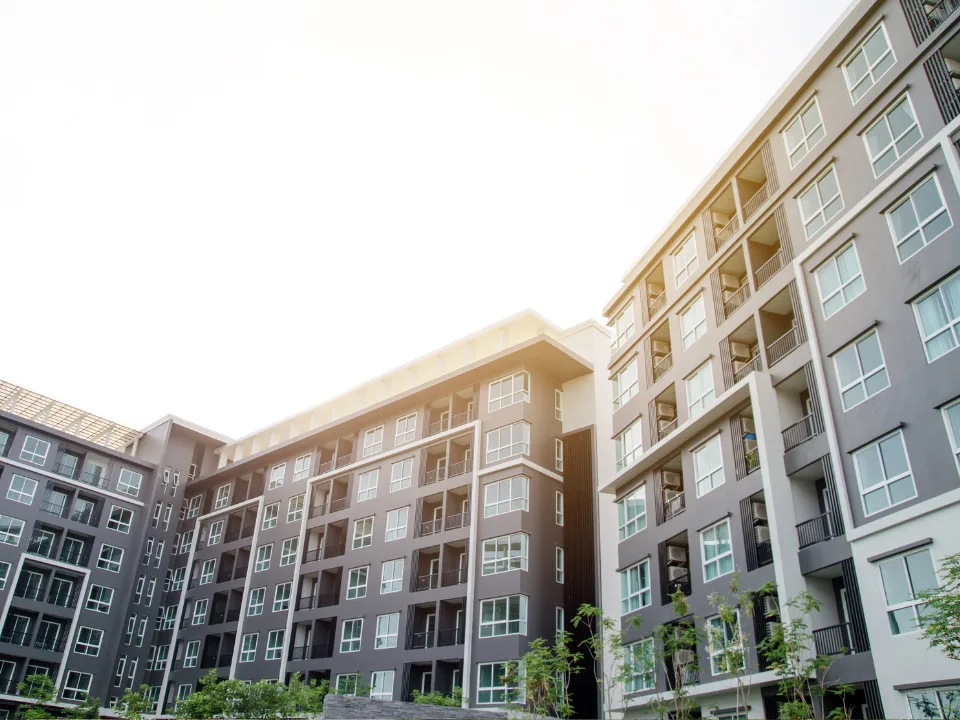Investor Pessimism Shadows America’s Downtowns
Wall Street seems to be growing skeptical about the future of American city centers.
Good morning. Wall Street is betting against America’s downtowns. Home builder sentiment in the US improves for the first time in almost a year as low supply and light competition boost sales. Meanwhile, real estate investor Bell Partners raises $1.3B for a new fund to buy and upgrade apartments in 14 target metros.
📰 Want more news? Stay up-to-date with the latest trends and market updates by following us on LinkedIn, Twitter, and Instagram.
Market Snapshot
|
|
||||
|
|
*Data as of 6/20/2023 market close.
👋 First time reading? Sign up here.
DIMMING DOWNTOWNS
City vs. Suburb: Why Wall Street is Losing Faith in Downtowns

Wall Street seems to be growing skeptical about the future of American city centers. There’s a noticeable decrease in investor attention towards bonds tied to transportation and downtown-focused real estate investment trusts, with both trading below their pre-pandemic values.
Impact on urban and suburban landscape: The move to remote work is causing downtown investment to drop and interest in low-rated Commercial Mortgage Backed Securities (CMBS) to rise. This trend threatens city finances and residents alike, with conventional income streams under strain. Anticipating austerity measures and escalating deficits, investors are strategically choosing tax-backed bonds and predicting suburban expansion.

Signs of struggle: Office infrastructure and public transportation systems show stress, with offices only half-filled and public transit ridership less than 70% of pre-Covid volumes. This unease is mirrored in bond pricing, especially those dependent on commuting fares. Notably, commercial mortgage-backed securities linked to office towers are revealing investor wariness, marked by considerable defaults. Office divisions of Brookfield Asset Management and Pacific Investment Management Co. have already defaulted on over $2B in CMBS. Furthermore, the share prices of the five biggest downtown office REITs have plummeted 63% since the end of 2019.

Value and tax conundrum: Estimating the impact on the worth of downtown office buildings is tough due to stagnant sales and long-term lease contracts. However, current projections point to a 38% drop in office property values in U.S. cities compared to pre-pandemic figures. Cities, which conventionally depend on property and wage taxes and commute fares for at least 10% of their income, face massive projected budget shortfalls due to decreased foot traffic and commuting. The value drop is prompting office building owners to challenge tax bills, which could either result in less collected revenue or an added burden on other taxpayers.
Go west (and south): Analysts’ faith in commercial real estate debt backed by large Californian and Northeastern cities is wavering. Asset Preservation Advisors, managing $6B in municipal bonds, increasingly favors suburban bonds in lower-tax Southern and Western states due to job growth and company relocations. In contrast, they are wary of cities like San Francisco, where rising office vacancies and potential property tax revenue declines due to valuation adjustments pose risks.

➥ THE TAKEAWAY
Rethinking downtowns: The pandemic has shifted investment towards suburban bonds due to changing work patterns and declining downtown values. Despite concerns about lower revenues and ending federal aid, cities still have recovery potential. However, the timeline for this recovery remains uncertain.
Around the Web
📖 Read: Think real estate is a playground for the wealthy? Think again. Brian Murray, a former teacher who became a successful real estate investor, shares his practical strategies for success in “Crushing It in Apartments and Commercial Real Estate”.
🖥️ Watch: Byron Lazine and Nicole White discuss ‘Bare Minimum Mondays’, why the NAR is losing members, and whether getting a real estate license is still worth it in 2023 on this episode of BAM.
🎧 Listen: Bob Knakal, Head of JLL’s NY Private Capital Group in NYC, talks about how he became a $24B broker through a long and storied career on this episode of The Fort with Chris Powers.
LIGHTEN THE MOOD
U.S. Homebuilder Sentiment Upbeat For 1st Time in Last 11 Months

The National Association of Home Builders (NAHB) released new data that shows home builders are finally more optimistic about the housing market.
The home builder yardstick: The National Association of Home Builders (NAHB) Housing Market Index (HMI) measures builder sentiment regarding current and future single-family home sales. Any reading over 50 is considered a favorable outlook for home sales. In June, the HMI shot up 5 points from May to a reading of 55. It’s the first positive read since July 2022, 11 months ago. It’s also the 6th consecutive monthly gain.

What’s changed (and what hasn’t): The optimism behind the newfound home builder sentiment is due in part to low levels of existing home inventory, a better supply chain, and growing foot traffic from homebuyers. But while home builder sentiment is increasing, home sales have been steadily decreasing since November 2022, alongside reductions in home prices. In June 2023, 25% of builders reduced home prices to bolster sales, after 27% cut price tags in May and 30% did so in April.
Why the optimism? Nonetheless, a cautiously optimistic outlook prevails among builders and developers, thanks to light competition from resale and an overall better supply chain. Builders are feeling optimistic about market conditions mostly because Federal Reserve Chair Jerome Powell indicated an end (for now) to the rate hiking cycle. This is great news for all CRE participants as lower mortgage rates and costs of financing for builder and developer loans have been sorely needed now for some time.
➥ THE TAKEAWAY
Light at the end of the tunnel: U.S. home builders continue to feel optimistic, marking an uptick in home builder sentiment after months of pessimism. While the industry still faces issues like tighter financing and declining home sales, its newfound optimism is due to low levels of existing home inventory and growing foot traffic from homebuyers. This brighter housing market outlook for builders and homebuyers alike is a welcome change to what has been a gloomy forecast all year long.
⏩ Forward this article by clicking here.
MULTIFAMILY MOVES
Bell Partners Raises $1.3B Fund to Buy and Upgrade Apartments
CRE property prices are plunging amid higher borrowing costs, and Bell Partners just raised $1.3B for its new Value-Add Fund VIII that seeks to acquire low-priced CRE properties nationwide.

Seeking profitable opportunities: Bell Partners Value-Add Fund VIII aims to purchase and upgrade as much as $3.2B worth of properties across 14 U.S. metro areas, including Atlanta, Austin, Boston, Dallas, Denver, Los Angeles, Orlando, San Francisco, and Seattle. Apartment prices have fallen 19% over the past year, according to real estate analytics firm Green Street.
Easier said than done: On top of facing higher borrowing costs, landlords must also deal with rising expenses for maintaining apartments. Additionally, rents in some U.S. cities are free-falling. More than $680B in loans on multifamily properties will come due through 2025, according to the Mortgage Bankers Association.
Staying strong: Although apartment transaction volume has declined due to market volatility, Bell Partners still has opportunities to meet redemptions, close out maturing funds, or harvest property gains. Buying anything right now with anything other than cash will be an exercise in debt juggling. Aside from buying, the real estate investor is also selling some of its properties to repay its investors or generate higher profits.
➥ THE TAKEAWAY
Job and retail centers in focus: By upgrading sagging CRE properties in those 14 target metros, especially in job and retail centers, Bell aims to increase returns through upgrades and everyday management efficiencies. Despite current market challenges, such as a surge in borrowing costs, multifamily demand remains high. Or, in their words, “People still need housing.”
⏩ Forward this article by clicking here.
✍️ Daily Picks
-
Devil in the details: Western central banks are battling inflation by raising short-term interest rates, but this actually may risk future inflation while worsening housing shortages.
-
Beware, you’re in for a scare: 2023 is expected to see the biggest corporate bankruptcy filings surge in well over a decade, and a lot of it may come from CRE.
-
Inside Amazon’s HQ2: Amazon opened the 1st phase of its new East Coast HQ2 in northern VA. It includes two 22-story office towers and can accommodate 14,000 employees.
-
Dividend slash cushioning: Office landlord Paramount Group (PGRE) cuts dividends by 55% to save $40M annually. The REIT struggles to fill space and could lose a key tenant if JPMorgan Chase stops leasing First Republic Bank’s San Francisco HQ.
-
Students aren’t happy: 4M Americans with federal student loans will start making payments again this fall, averaging $200–$299 per month, which could cause a reduction in retail spending.
-
The price of comfort: Americans need almost $1M more in net worth to feel financially comfortable in the most expensive cities like San Francisco, New York, and Los Angeles.
-
Cash-strapped receivership: An LA judge approved a plan to remove seven buildings from a receivership tasked with stabilizing 29 buildings managed by Skid Row Housing Trust.
-
Kings and Queens: $500M in real estate loans were just granted to Brooklyn and Queens, with three projects in Gowanus receiving half of the funding.
-
Hybrid work: In Q2, the amount of sublease space available in downtown Chicago reached a new record of approximately 8.1 MSF.
-
“Halt, I say!” Prince George’s County paused a bill halting townhouse construction for two years across most of the county due to concerns about inadequate infrastructure.
-
Student housing for the win: Purpose-built student housing is attracting steady occupants, outperforming conventional multifamily for the 1st time in a non-contractionary period.
-
Deal of the day: Customers Bancorp (CUBI) has acquired a $631M venture banking loan portfolio from the FDIC, creating venture banking coverage in eight cities across the U.S.
-
Uncommon development: Matter Real Estate’s $850M mixed-use project, UnCommons, is leading the charge in turning Vegas from a tourist-first city to a local office mecca.
-
Measurable results: San Diego-based Measurabl secured $93M in a 4th-round funding round to sell ESG and energy reporting tools for CRE to over 1,000 clients in 93 countries.
-
From offices to warehouses: 15.2 MSF of U.S. office space has been converted to industrial use, a 33.7% increase since 2019, as offices struggle with low footfall and vacancy rates rise.
-
Surprise success story: Hudson Yards is generating $200M more in annual tax revenues for NYC than expected, according to City Comptroller Brad Lander, contradicting its liberal opponents.
-
Breaking ground, building momentum: Frampton and Greystar have broken ground on the 1st phase of Spartanburg’s Mid85 industrial park, which will include two warehouses with 2 MSF.
📈 Chart of the Day
Multifamily real estate has demonstrated lower volatility compared to stocks and REITs, with little correlation to the stock market. Additionally, it has outperformed bonds in annual returns for all but two of the past 23 years.
What did you think of today’s newsletter? |
HIT THE INBOX OF 65K+ CRE PROFESSIONALS
Advertise with CRE Daily to get your brand in front of the Who’s Who of commercial real estate. Subscribers are high-income decision makers, investors, and C-suite executives always looking for their next investment, product, or tool.



















